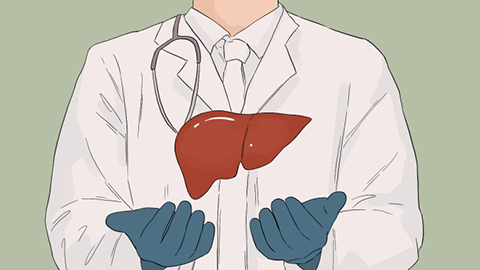What causes elevated transaminase levels?
Generally, elevated transaminase levels may be related to factors such as strenuous exercise, excessive fatigue, dietary habits, fatty liver disease, and alcoholic liver disease. It is recommended to seek timely medical consultation to determine the underlying cause and undergo symptomatic treatment under the guidance of a qualified physician. Detailed analysis is as follows:

1. Strenuous Exercise
During strenuous exercise, muscle cells may experience minor damage, leading to the release of intracellular transaminases into the bloodstream, thereby increasing transaminase levels in the blood. It is recommended to appropriately plan the intensity and duration of exercise and avoid prolonged or high-intensity physical activity.
2. Excessive Fatigue
Long-term overexertion can lead to a decline in bodily functions and increased burden on the liver, thus affecting normal liver function and causing elevated transaminase levels. It is advised to ensure adequate sleep, manage work and rest periods effectively, and avoid excessive fatigue.
3. Dietary Factors
A diet high in fat, sugar, and salt may increase the burden on the liver, causing damage to liver cells and resulting in elevated transaminase levels. It is recommended to maintain a balanced diet and reduce the intake of high-fat, high-sugar, and high-salt foods.
4. Fatty Liver Disease
Fatty liver disease is commonly caused by long-term alcohol consumption, obesity, and other factors. The fat degeneration of liver cells increases cell membrane permeability, leading to the release of transaminases into the bloodstream. This condition is often accompanied by symptoms such as fatigue in the liver area, abnormal lipid levels, and sleep disturbances. Treatment typically involves medications such as Simvastatin tablets, Atorvastatin Calcium tablets, and Polyene Phosphatidylcholine capsules, as directed by a physician.
5. Alcoholic Liver Disease
Alcoholic hepatitis is usually caused by chronic excessive alcohol consumption. Acetaldehyde, a byproduct of alcohol metabolism, has a direct toxic effect on liver cells, leading to cellular degeneration and necrosis, and the subsequent release of transaminases into the blood. This condition is generally accompanied by symptoms such as jaundice, ascites, and malnutrition. Treatment typically involves medications such as Reduced Glutathione for Injection, Compound Glycyrrhizin Injection, and Potassium Chloride Injection, as directed by a physician.
It is recommended to maintain a pleasant mood, relieve stress through activities such as meditation and listening to music, and engage in appropriate aerobic exercise to help maintain liver health.




